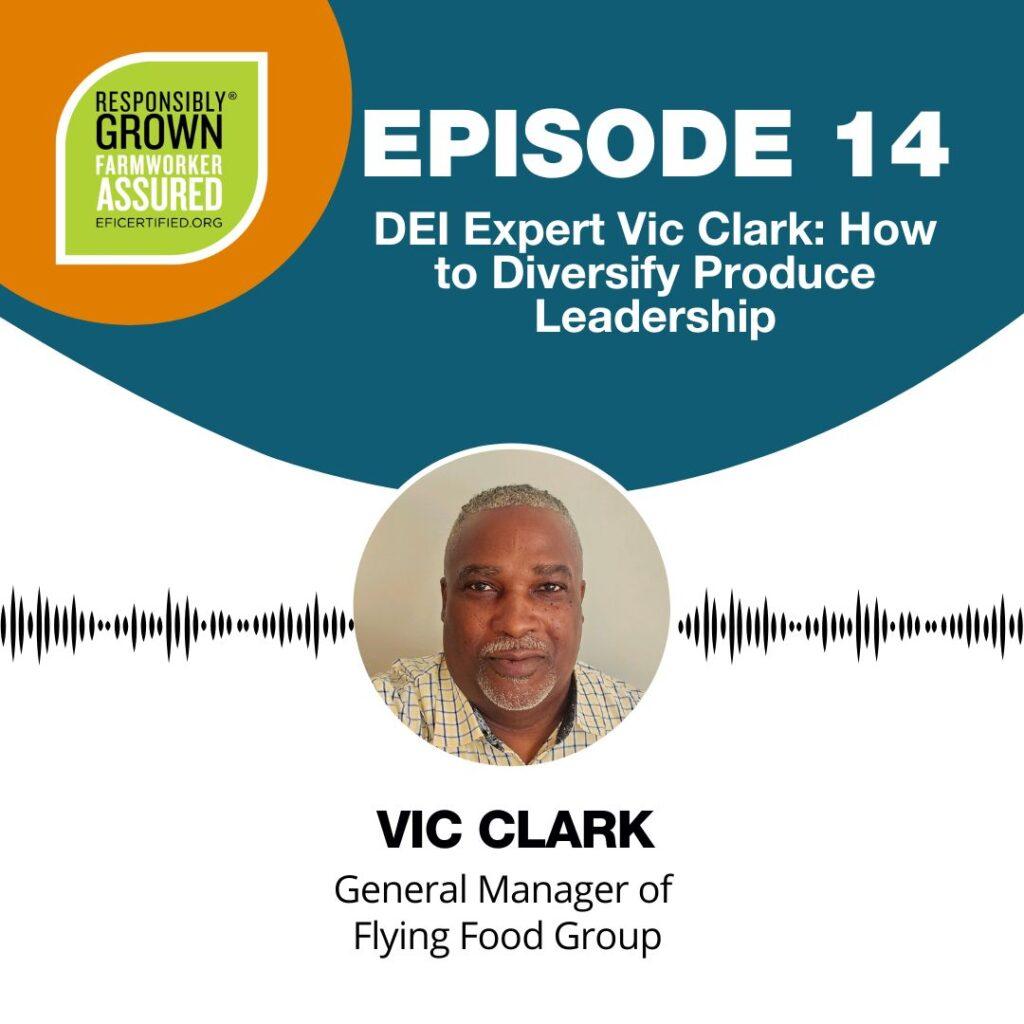
In this episode of the Tip of the Iceberg Podcast, Vic Clark, a 20+ year fresh produce veteran who has held general manager roles in several fresh produce companies, provides a new perspective on how the generational history of farming has influenced leaders in the produce industry today. Clark is also a member of the Diversity, Equity and Inclusion (DEI) Committee for the International Fresh Produce Association (IFPA). Drawing from his experience, he shares practical ideas on how we can contribute to promoting diversity, equity, and inclusion.
DEI has shown to improve workers’ commitment and performance in their company. And like most industries, the fresh produce industry is actively working on embedding and continuously improving its actions to develop an inclusive and diverse industry.
According to Clark, the produce industry is complex because it relies heavily on relationships, including relationships between families who have owned land for many years. Landownership has a racially loaded past, and that has influenced what landownership looks like to this day. But how do we start to close this gap? Is it about building trust? Is it about leveraging diversity? Is it about having this conversation and breaking the glass ceiling? Listen to the podcast HERE to learn more about how to get started.
While this podcast episode provides a rich source of enlightenment, Clark provided other resources where you can learn more about some DEI initiatives and efforts in the produce industry. One of these resources is the report on the Korn Ferry Diversity and Inclusion Maturity Model, from the IFPA, which offers a tool to create a roadmap of where the organization wants to go with DEI and at what pace.
As we look to the future, Clark encourages everyone to consider the upcoming challenge of developing new leaders in the produce industry. The young individuals of today will become the leaders of tomorrow, and they must receive the necessary support and resources to create a diverse and fair industry in the future. To create change, we must all be willing to step outside of our comfort zones and engage in open and honest conversations about the current state and potential of the industry. Thankfully, these discussions have already begun.

